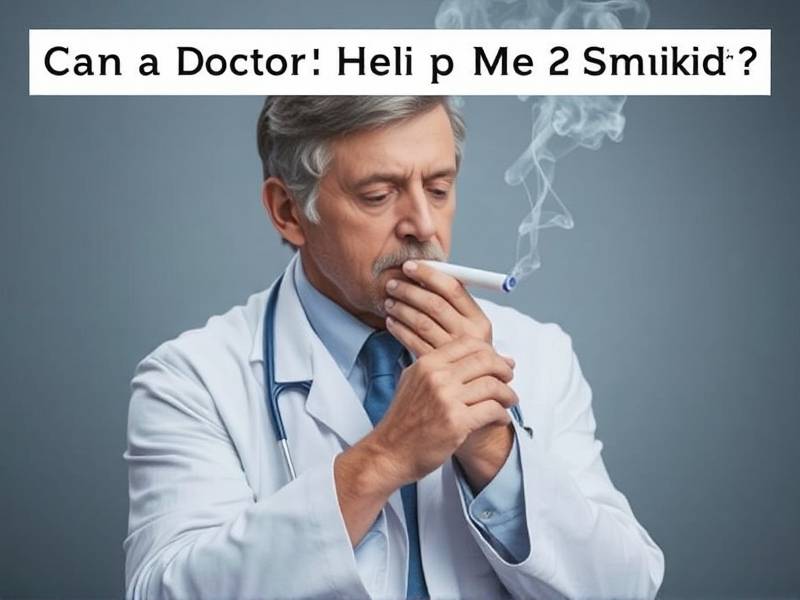Can a Doctor Help Me Quit Smoking?
The Role of a Doctor in Your Smoking Cessation Journey
Subheading: How Can a Medical Professional Support You in Quitting Smoking?
Introduction: Smoking is a habit that can have devastating effects on your health. Many individuals find it challenging to quit smoking, but with the right support, it's possible. One significant source of support is consulting a doctor. In this article, we will explore the ways in which a doctor can help you quit smoking and why seeking their guidance is essential.

I. Understanding the Benefits of Quitting Smoking
Before delving into the doctor's role, it's crucial to understand why quitting smoking is beneficial. According to the Centers for Disease Control and Prevention (CDC), smoking causes numerous health issues, including heart disease, stroke, lung cancer, and chronic obstructive pulmonary disease (COPD). By quitting smoking, you can improve your overall health and reduce your risk of developing these conditions.
II. The Doctor's Role in Smoking Cessation
A. Assessment and Diagnosis One of the first steps your doctor will take is to assess your current health status and determine any potential risks associated with quitting smoking. This assessment may include blood tests, lung function tests, and discussing your medical history.
B. Tailored Treatment Plan Based on your assessment results, your doctor will develop a tailored treatment plan that suits your individual needs. This plan may include medication options such as nicotine replacement therapy (NRT) or prescription medications like bupropion or varenicline.
C. Behavioral Support Quitting smoking isn't just about medication; it also requires behavioral changes. Your doctor can provide guidance on techniques to overcome cravings and develop healthier habits. They may also recommend counseling or support groups to enhance your chances of success.
D. Monitoring Progress Throughout your journey, it's essential to track progress and address any setbacks that may arise. Your doctor will monitor your progress regularly, adjusting treatment plans as necessary to ensure you receive the best possible care.
III. Why Seek a Doctor's Help?
A. Professional Expertise Doctors possess extensive knowledge about smoking cessation strategies and can provide evidence-based recommendations tailored to your specific needs.
B. Medication Management Your doctor can prescribe medications safely and effectively while monitoring potential side effects.
C. Emotional Support Quitting smoking can be emotionally challenging; having a healthcare provider by your side can provide much-needed support during this process.

Conclusion: Embarking on a journey to quit smoking is an important step towards better health. A doctor plays a vital role in supporting you throughout this process by providing professional expertise, tailored treatment plans, behavioral support, and emotional guidance. Don't hesitate to seek their help as you strive for a smoke-free life!
